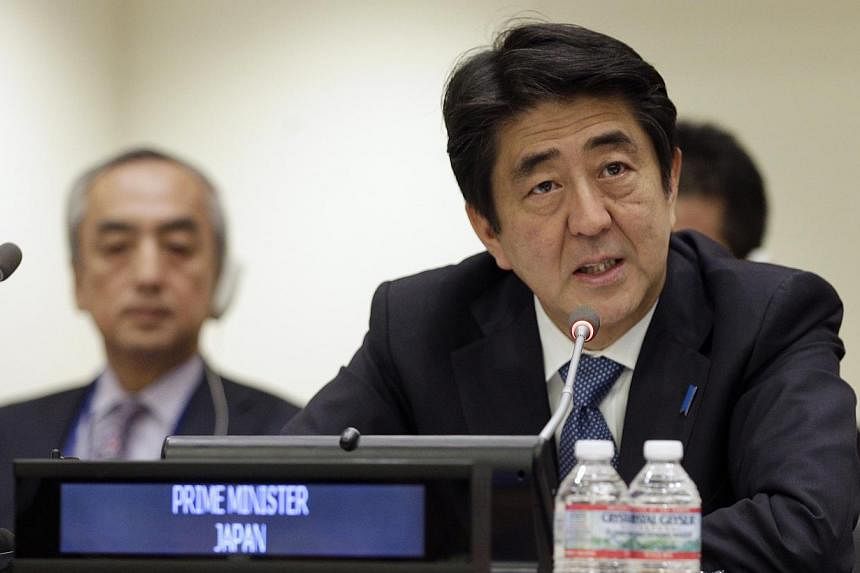TOKYO (AFP) - There is "a significant opportunity" for a first meeting between the Chinese and Japanese leaders at a regional gathering near Beijing next month, but the ball is in Tokyo's court, China's envoy to Japan said Wednesday.
After almost two years of high tensions, Japanese Prime Minister Shinzo Abe has wasted no opportunity in recent weeks to talk up his chances of meeting President Xi Jinping on the sidelines of an APEC (Asia Pacific Economic Co-operation) summit.
Observers say the strategy is intended to bounce the Chinese president into a summit, or into a public snub that allows Japan to paint itself as the aggrieved party in a gathering public relations war.
But Mr Xi's ambassador to Tokyo, Cheng Yonghua, on Wednesday reiterated Beijing's line that Japan has to make concessions if there are to be talks.
"Major obstacles to current China-Japan relations are the issues related to history and territory," he said in a speech to business leaders in Tokyo."These are political obstacles that affect and critically hinder bilateral relations" from improving.
"The APEC summit to be held in Beijing in November will be a significant opportunity... But it is also true that there are problems."
Mr Abe has not held official talks with either Mr Xi or Premier Li Keqiang since he took office in December 2012. On Wednesday as he left for an Asia-Europe meeting in Milan, Mr Abe expressed his hope for contact with Mr Li in Italy.
"In terms of talks with China and South Korea, I hope I will have a chance to chat," he told reporters. Mr Abe has not held a one-on-one summit with South Korean President Park Geun-Hye, either.
The Chinese envoy blamed Japan for creating "obstacles" and sending bilateral ties to their lowest ebb since the two countries established normal diplomatic relations in 1972.
"The so-called purchase of the islands and the issue of history last year, which is the issue of Yasukuni, have had a significant impact on China-Japan relations," he said, referring to Tokyo's nationalisation of disputed islands in the East China Sea, and to Mr Abe's visit to a controversial war shrine.
The Japanese-controlled Senkaku islands, claimed by China as the Diaoyus, have been a source of friction for decades, but the issue became inflamed in 2012 when Tokyo bought some of them from their private Japanese owner.
Similarly, visits to Yasukuni, which honours Japan's war dead, including criminals from WWII, cause irritation, and Abe's 2013 pilgrimage was bitterly criticised.
China and South Korea see the shrine as a symbol of Japan's unwillingness to face up to its brutal warring history.
"I must stress that Japan's correct understanding and deep remorse on the past military invasion is an important political foundation for the China-Japan relationship to solidify and develop," Mr Cheng said.

